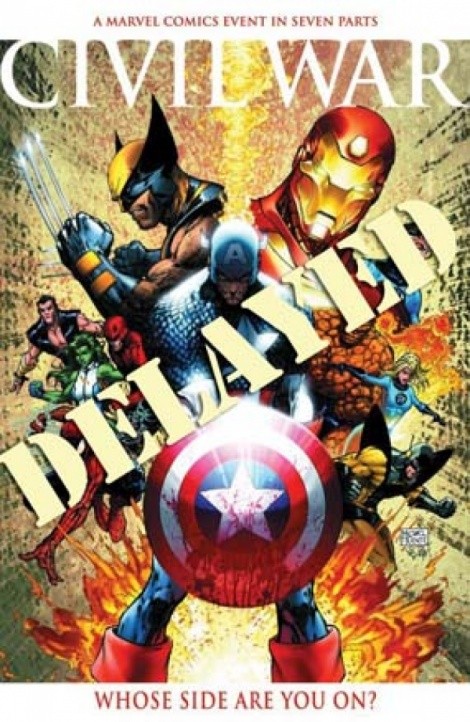
This is a sentiment that a lot of fans stand by: As long as the book is good, they’re willing to wait. Marvel experienced this issue two years ago, when Issue No. 4 of Civil War—the epic crossover drawn by Steve McNiven—was delayed. The story was so broad and it encompassed so many characters that McNiven was having a hard time maintaining a satisfying level of quality on the tight monthly deadline. The decision to delay the entire series instead of hiring a fill-in artist to help caused a number of fans to cry foul. Looking back on the series in the collected edition, it reads and flows much better with a consistent art tone than it would have had there been fill-in pages littered throughout.
DC, however, recently began assigning fill-in artists for a number of books—including the current Final Crisis storyline—in order to keep a monthly schedule. The company seems to agree with those who oppose delays for any reason. That new, unadvertised policy left a number of fans scratching their heads at the DC Nation panel at ComicCon, when executive editor Dan Didio announced that film director (and sometime comic scribe) Kevin Smith would be writing a three-issue Batman series in November.
While Smith has a long history of writing comics, he has an even longer history of turning them in extremely late. In 2002, he was employed by Marvel to write a four-issue Daredevil mini-series to tie into an upcoming film starring Ben Affleck. The first issue came out in November 2002—and there has been nothing since. Around the same time that project got under way, he began writing a six-issue Spider-Man series that ended up with a two-year delay between issues 3 and 4. It surprised a lot of people that—with DC’s seemingly strict policy and Smith’s penchant for tardiness—they would let him anywhere near their characters, let alone one as popular as Batman.
Smith made a surprise appearance to talk about the project briefly and to acknowledge that he has problems hitting deadlines. He even poked fun at himself (as he usually does) stating that he’s Mr. Foreplay when it comes to comics—“great at first issues but anything after that—good luck.”
Lateness in comics isn’t anything new; both Allan Moore’s Watchmen and Frank Miller’s Batman opus The Dark Knight Returns incurred numerous delays, but no one seems to remember since the completed versions of both turned out so well. At the Entertainment Weekly Visionaries of Comics panel, a fan brought up the topic of lateness and how creators felt about it. Hellboy creator Mike Mignola promptly responded, “I spent 10 years doing monthly comics, and I produced a lot of garbage.” For just about every creator, the bottom line will always be quality over speed.
Lateness is an argument that will never be fully resolved, but that won’t stop the discussions on message boards and Q&A sessions at conventions. As long as there are comics, a few will be late. In 10 years, will anyone still remember that Kevin Smith never finished Daredevil: The Target? Probably—but only because Smith will still be making fun of himself for it.